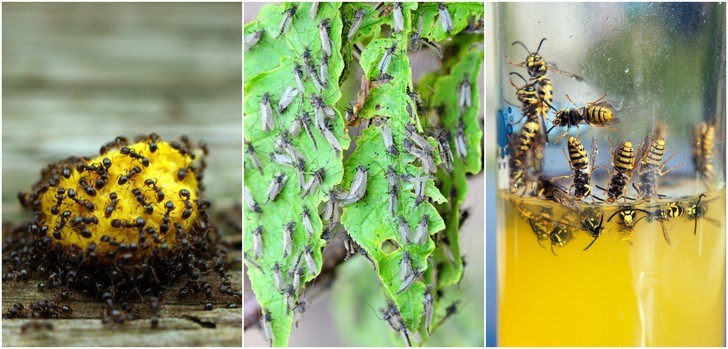
What does summer mean to you? To most, summer means pool time, cookouts, county fairs and camping trips.
But, if you‘re like me, summertime means one thing: bugs.
Anytime I go outside during the summer, I am fighting swarms and swarms of insects that want nothing more than to feast on me, and THAT is NOT my idea of summer fun!
I’m guessing it’s probably not yours either.
While many people grab those convenient, chemical-filled insect repellents that contain DEET, I am always looking for more natural ways to keep those annoying critters away from me, my home and my garden.
If you’re like me, read on for some tips to naturally repel the peskiest of insects so that you can get back to enjoying your summer.
To make things easier, we’ve categorized your options by bugs – so when you see one, you’ll know just which solution will take care of the problem.
Of course, some natural solutions are effective for all types of bugs, so we’ve got you covered there too…
General Bug-Fighting Tips:
1. Keep A Clean House
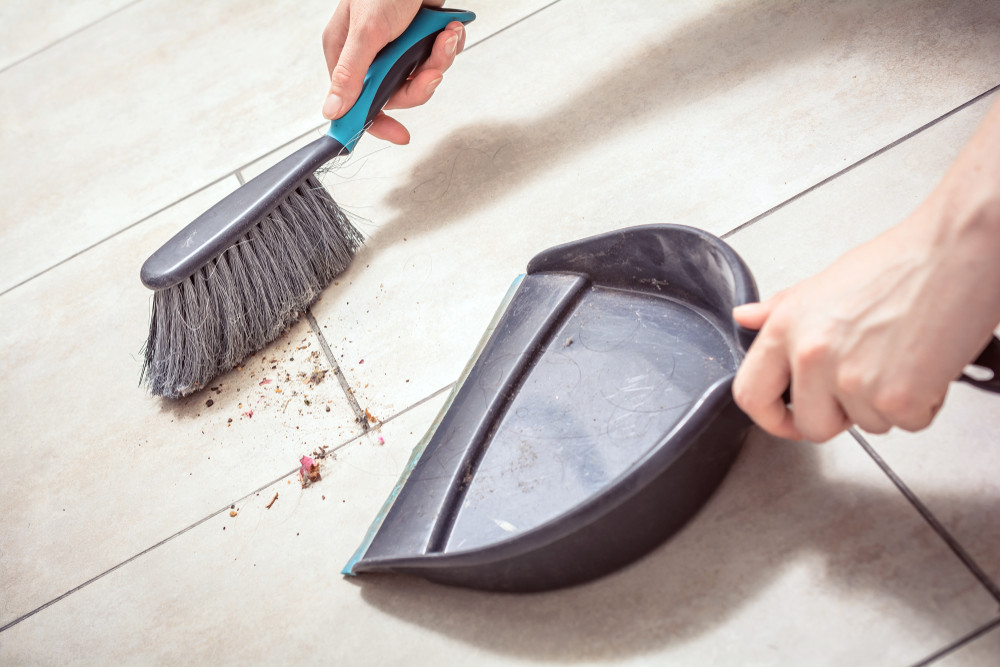
Cleanliness is key to a bug-free house. While it may not be a fun way to keep pesky insects away, it does work.
Make sure to dust regularly, vacuum and wash all surfaces with soapy water frequently to keep pests from making themselves at home in your home.
Be especially diligent around places where crumbs and other bits of food tend to lurk.
Vacuum regularly, at least once a week, and when trash starts to pile up, take it out or at least be sure the bins are sealed.
Keep in mind that bugs like cockroaches, really hate light and they love the smell of paper, so avoid having stacks of newspaper, magazines, boxes or paper bags.
2. Cinnamon
Sprinkling cinnamon around the house is a great way to keep bugs out.
Experts say that if you sprinkle the cinnamon in a line around their point of entry, they won’t cross it.
Another interesting tip?
Some folks say sprinkling cinnamon in kids’ sandboxes can keep bugs from hanging out in there as well.
3. Dryer Sheets
It might sound like an old wives tale, but dryer sheets actually work.
Putting a dryer sheet in your pocket while you are hiking, camping or gardening can keep mosquitoes, gnats, and other insects out of your way.
It may seem a little weird, but it’s far better than slathering on the bug spray, and your clothes will smell amazing too.
Here’s how to make your own dryer sheets.
4. Onion
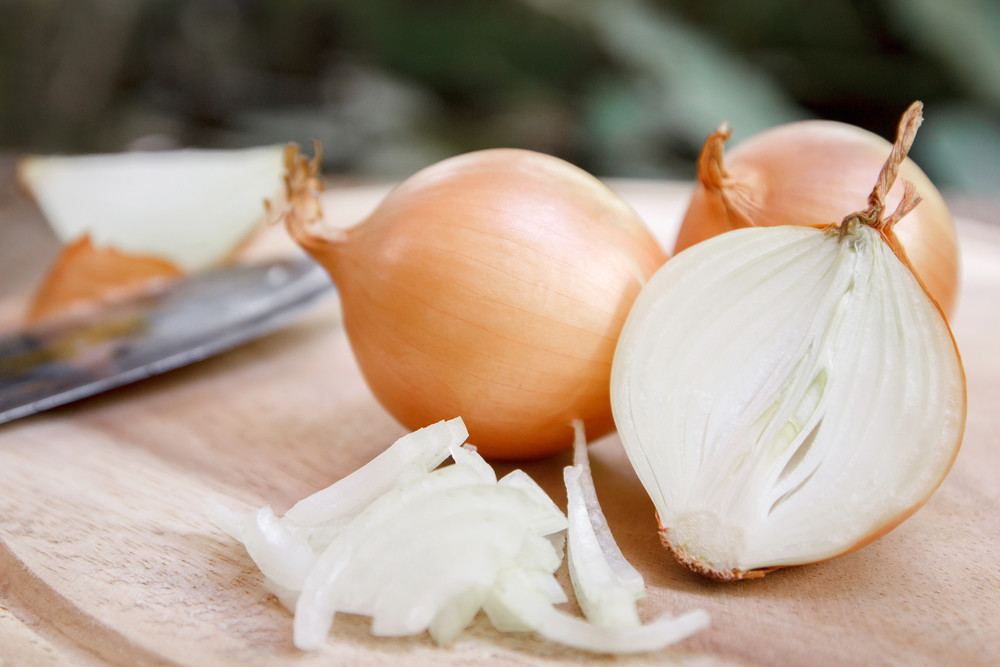
A common insect repellent trick handed down from the older generations is to slice up some onions, toss ’em in a bowl of water, and the bugs will run far away.
You can also use onion plants in your garden as “companion plants,” to keep the bugs from attacking their partner plants
5. Vanilla Extract
If you want an insect repellent that doesn’t smell like garlic or onions, this one is an excellent choice.
You can mix vanilla extract with water for an insect repellent that smells good.
If you like the scent of lemongrass, lavender or mint, you can add those essential oils to the mixture too, and you’ll smell great while fighting off the pests at the same time.
6. Herbs
If you’re looking for a great way to keep bugs from ever getting into your house in the first place, plant some fragrant herbs around both the front and back doors of your house.
Not only will the herbs keep insects from making themselves at home, they can liven up all your dishes in the kitchen too.
There are practically an endless number of choices, but some of the best are catnip, lemongrass, garlic, mint, citronella, basil and even bay leaves.
7. Relax

Did you know that when you’re stressed out, or sweating, your body releases hormones and pheromones that the bugs are attracted to?
It’s really true, that’s why you should not only try to stay calm and centered when you go outside, but you might want to avoid exercising in a buggy place.
When you need to stress out, do it away from the bugs, inside.
8. Soybean Oil
Soybean oil is usually used in cooking, but recent research has shown that it is also a great insect repellent.
In a recent study, experts found that insect repellents made with soybean oil kept the mosquitoes away for an astonishing 94.6 minutes, which was WAY more than any other plant-based repellent that was tested.
9. Citronella
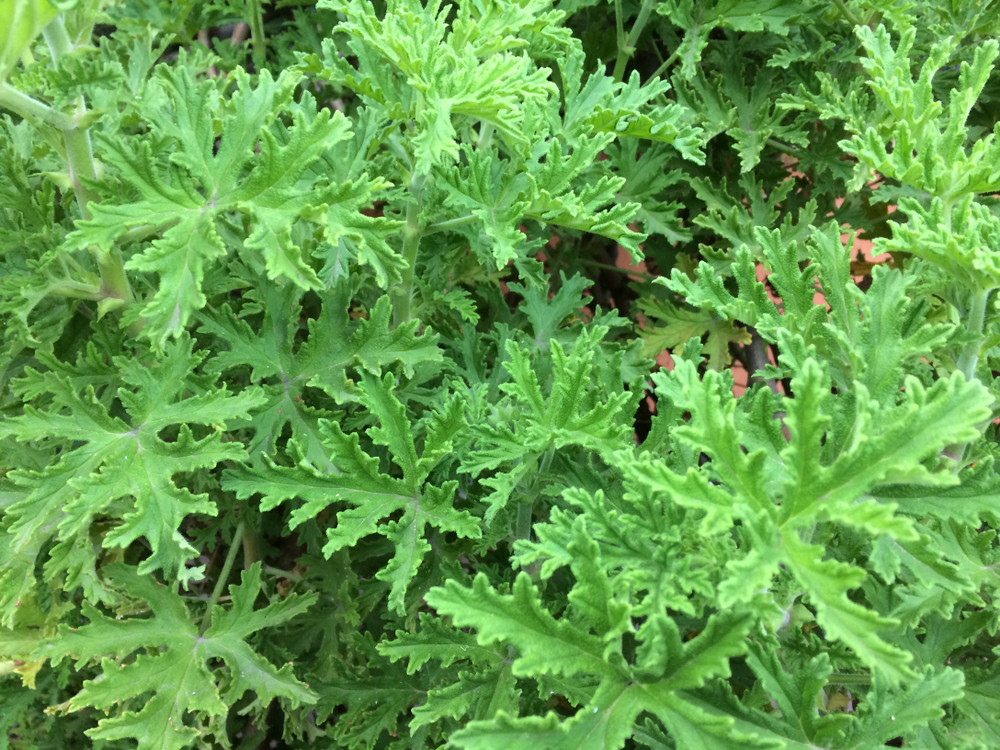
Citronella is a lemony grass-like plant that bugs absolutely hate.
You probably already know about it, since it’s found in almost all outdoor candles, torches and lanterns and is considered to be one of the most powerful natural insect repellents around.
You can buy or make the candles, but you can also plant citronella grass outside of your home, or you can buy the oil, dilute it in a carrier oil and rub it directly on your skin.
10. Use Unscented Toiletries
Bugs are automatically attracted to flowers and fruit, so if you are shampooing with strawberry-mango shampoo and spritzing with passionfruit body spray, you’re probably going to be a hot target for all sorts of tiny critters.
If bug bites are a huge problem for you, try to opt for unscented or fragrance-free body products.
How To Get Rid Of Moths:
11. Cedar
If you have moth issues, natural cedar is a great way to keep them away. Since moths have a natural aversion to cedar, you can buy cedar blocks like these, or shavings, and place them in your closet or dresser in order to keep those pesky little bugs from chewing through all your clothes and other fabrics.
12. Mint Leaves
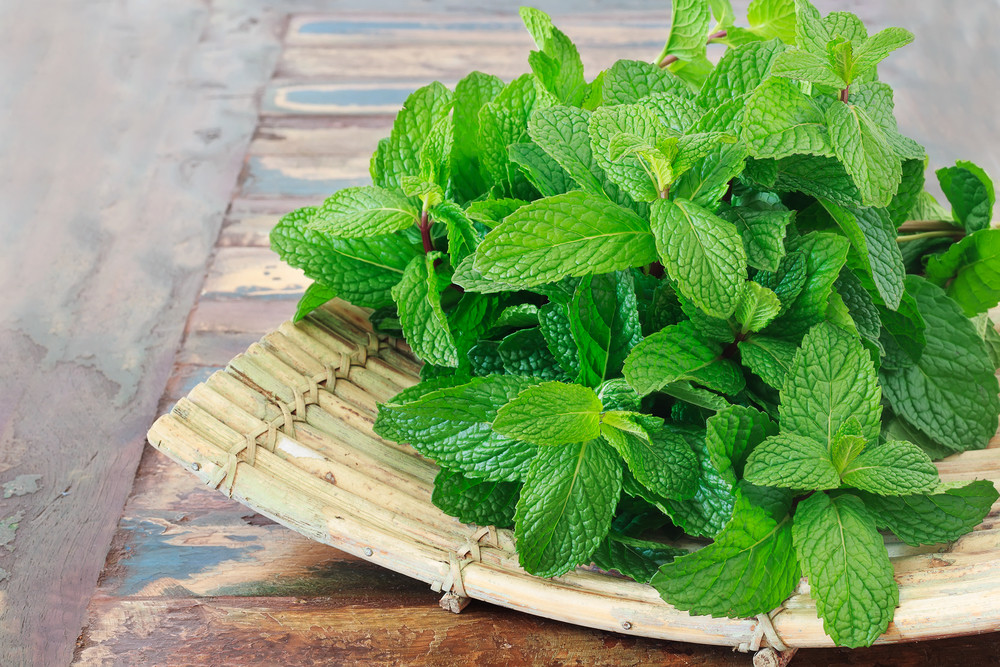
Mint leaves are fantastic for repelling moths. All you have to do is place a handful of the dried leaves into a sachet, or place loose leaves among your clothing.
If you don’t have any mint leaves, peppermint essential oil works well too.
Just put a few drops of it onto a cotton ball and tuck it into your dresser, you can put others in your closet, or other areas that moths are attracted to like storage chests.
13. Lavender
You can use lavender the same way you would mint.
Fill up sachets with dried lavender, or put a few drops of 100% lavender essential oil on cotton balls and then place them in your drawers, closets, and boxes of clothing.
It smells wonderful to us, but for those pesky moths, it’s highly offensive.
How To Get Rid Of Spiders:
14. Citrus Peels
Here’s a great tip for keeping spiders out of your home, and it smells lovely too.
You can use the peels of any citrus fruits to rub down any areas of your house that spiders have been frequenting, like windowsills or bookshelves.
An added perk? Citrus peels also make a great natural furniture polish for wood surfaces.
15. White Vinegar
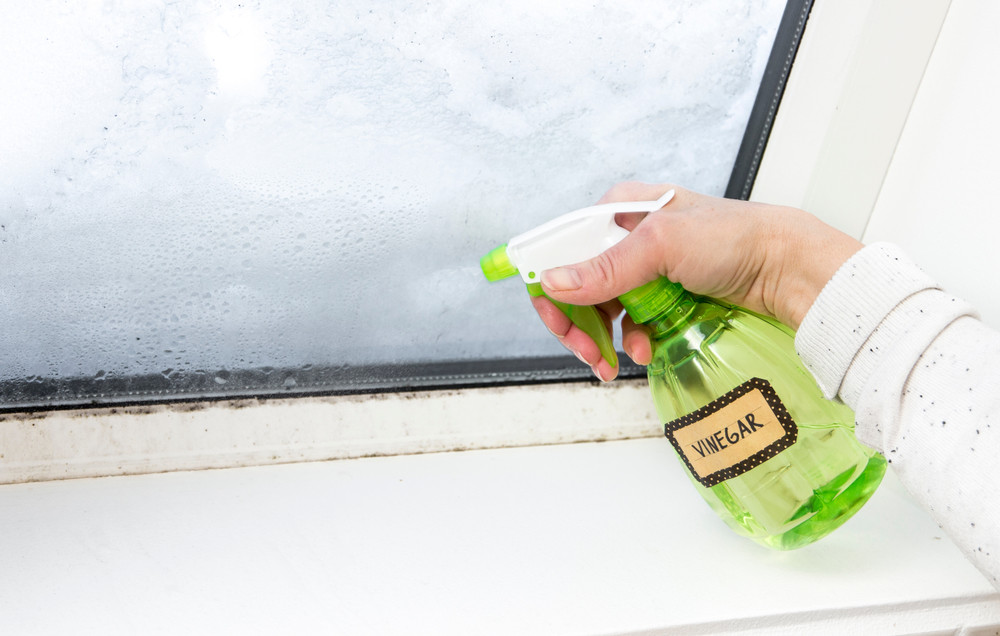
If you don’t have a bottle of vinegar in your house, you should really get one as it has about a gazillion uses, including repelling spiders.
As vinegar contains acetic acid that harms them, using a diluted vinegar solution will help you to safely and successfully repel the eight-legged creatures.
All you need is a spray bottle, some white vinegar, and water. Combine equal parts of water and vinegar in your spray bottle, and then spray directly on cobwebs and spiders.
Also spray in any place you usually find them, like cabinets, closets, and corners. Be sure to spray any cracks and crevices in the floor and walls.
You may need to repeat regularly.
16. Turmeric
Turmeric is something you should use when cooking frequently as it offers a wealth of health benefits, but it’s also great for driving spiders away.
To use it, combine 2 tablespoons of the powder with water to make a fine paste, and then apply the paste to cotton balls and place them in areas of your home that are prone to spiders.
Whatever you do, don’t apply the paste directly to your furnishings, walls, floors, etc., as turmeric stains are extremely difficult to remove.
More Spider Fighting Tips: 12 Best Ways To Keep Spiders Out Of Your Home
How To Get Rid Of Mosquitoes:
17. Lemon Eucalyptus Oil

Studies have shown that lemon eucalyptus oil is just as effective as DEET for repelling mosquitoes. Consumer Reports, the CDC, and many others have recommended it as an excellent mosquito repellent.
A 40 percent or higher concentration does the trick in warding them off.
18. Garlic
If you want an easy, and tasty way to keep the mosquitoes at bay, just eat lots of garlic!
While those who are close to you may not appreciate it, garlic has long been said to keep the mosquitoes away. While there hasn’t been much research done, the proof seems to be in the results -as they do steer clear.
That because when your body secretes garlic through sweat, the bugs can detect it, and they can’t stand it.
Plus, eating more garlic is good for your health too as it’s loaded with antioxidants and can even fight off infections.
19. Make Smart Fashion Choices
Not only is it good to wear lighter-hued clothing to keep you cooler in the summer months, but it offers the added benefit of repelling mosquitos.
That’s because the insects are attracted to dark colored clothes.
Be sure to cover as much of your skin as possible, and try to choose materials that are made of tightly-woven fabric so that mosquitoes can’t penetrate your first defense.
20. Build A Bat House
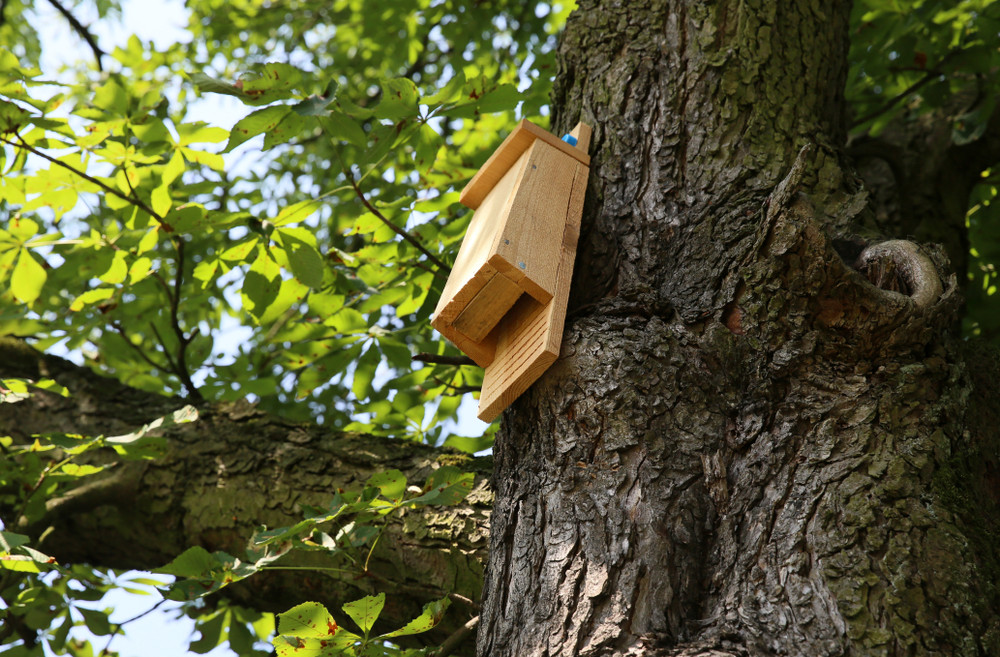
Yes, this option might sound a little crazy, but if you are at your wit’s end with the bugs, you can simply let someone with a little more experience take over.
Building a bat house and attracting bats to live near your house can pretty much annihilate the areas mosquito population.
Bats can eat up to 3000 mosquitoes in a single night, so hiring them to do your dirty work can be one of the best decisions you’ve ever made.
If you’re interested, you may want to check out this post to help you get started.
21. Clove oil
Clove oil has a myriad of uses, including being an effective mosquito repellent.
Just keep in mind that it should NEVER be applied directly on the skin as it can cause an irritation, burning sensation or even nerve damage.
To be safe, it should be diluted to a concentration of no more than 24 percent. The best blend is a mix of 80 percent olive oil or coconut oil to 20 percent clove oil.
Simply mix the two together well and then apply it to uncovered areas of your body.
22. Get Rid Of Standing Water
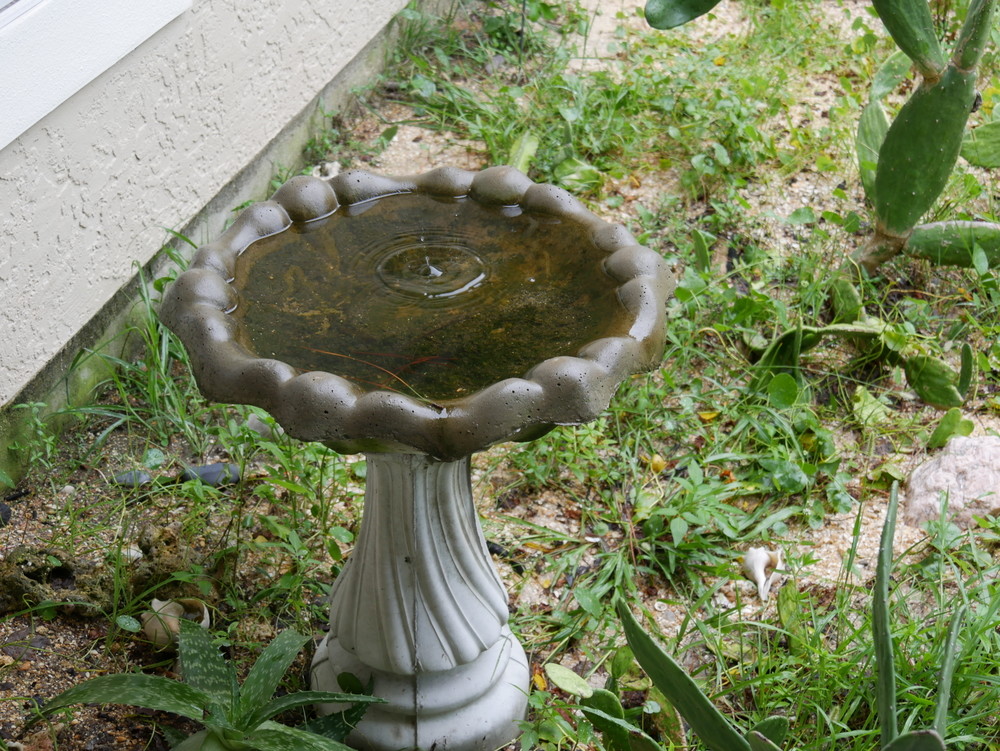
Mosquitoes like to live in standing water, so you might be inadvertently inviting them to hang out at your home.
That bird bath or kiddie pool in the yard might look like the Mosquito Hilton!
Keep your grass trimmed short and get rid of any containers that might be harboring standing water, so your home doesn’t seem so enticing to those little pests!
More Mosquito Fighting Tips: 13 Best Natural Ways To Get Rid Of Mosquitoes
How To Get Rid Of Ants:
23. White Vinegar
If you have an ant problem, white vinegar can come to your rescue for those insects too.
It’ll send an immediate eviction notice to any that are on your premises, as they can’t bear the strong smell.
Plus, the aroma of vinegar masks their scent trails, which makes them lose their direction.
Simply put some white vinegar in a spray bottle, and lightly spritz areas where ants like to hang out, including around baseboards and other entry points.
After an hour or so, wipe up the ants using a damp paper towel and throw them away.
You can also use this vinegar solution to clean floors, window sills, and countertops to prevent ants from crawling over these surfaces.
Be sure to test the solution first if you are going to be using it on carpet or a colored fabric.
24. Chalk
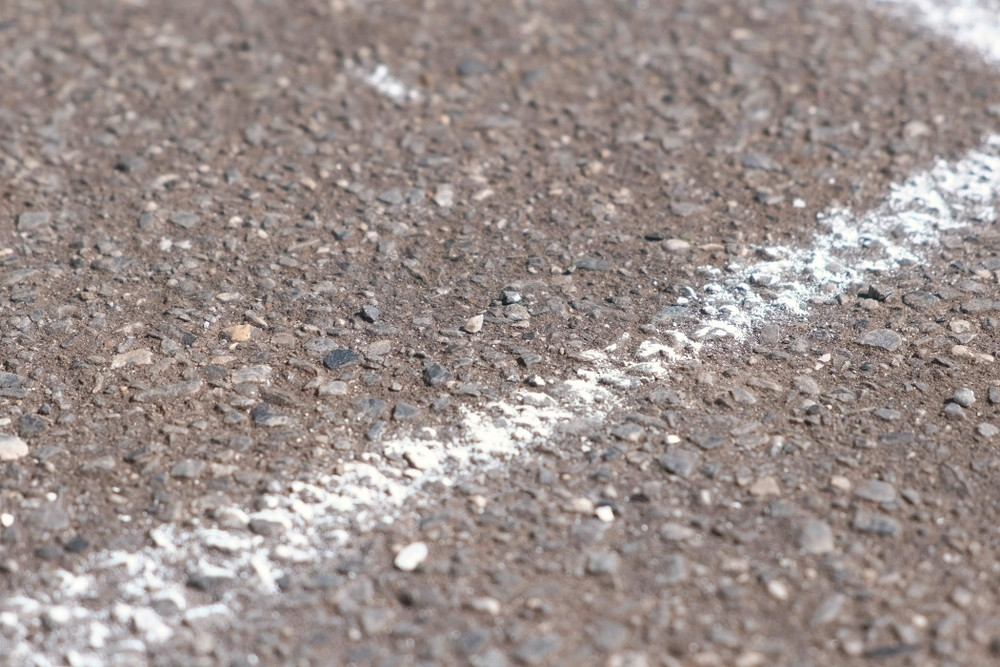
It may sound crazy, but apparently, ants are afraid of chalk. There’s actually a good reason behind that – ants don’t want to walk through a line of powdery material, like chalk dust (as well as diatomaceous earth).
Chalk is made from calcium carbonate, which is basically ground-up seashells.
They refuse to cross a chalk line because it interferes with their ability to follow scent trails that are left by other ants.
To keep them out, just draw a chalk line over any entry points to your home or the perimeter of a dining area on the patio.
25. Cucumber Slices
Ants also despise cucumbers. Who knows why, but they do.
All you have to do is slice a cucumber up and leave it laying around in places like your kitchen counters, and they’ll stay as far away as possible.
More Ant Fighting Tips: 10 Best Ways To Get Rid Of Ants From Your Home & Garden
How To Get Rid Of Wasps:
26. Peppermint Oil

Wasps don’t like any type of mint, including peppermint, which is why using peppermint oil can be one of the best ways to repel them.
A study published in the Journal of Pest Management Science in 2013, reported outstanding results with peppermint oil.
You can keep them out of your garden by planting any type of mint, and you can also soak a few cotton balls in peppermint oil and place them strategically around the outside of your home where wasps like to build nests, such as porch roofs, under eaves and other crevices and ledges.
27. An Essential Oil Blend of Lemongrass, Clove, & Geranium
The same research referenced above, also showed that a blend of lemongrass, clove and geranium essential oils managed to completely repel worker wasps.
You might try applying a mix of several drops of each of the oils (available here) in a spray bottle filled with water, and a few squirts of dish soap.
Coat the areas outside of your house, as before, in places wasps are known to build nests, to keep them away.
28. Grow Plants that Repel Wasps
If you don’t want to kill the wasps, you can use plants that repel them.
Not only will any mint type of plant work, but there are several others that will deter them, including basil, lavender, lemongrass, lemon thyme, rosemary, fennel, chives, lemon balm, oregano, parsley, and thyme.
More Wasp Fighting Tips: 8 Ways To Keep Wasps Away
How To Get Rid Of Flies:
29. Lemon stuffed with cloves
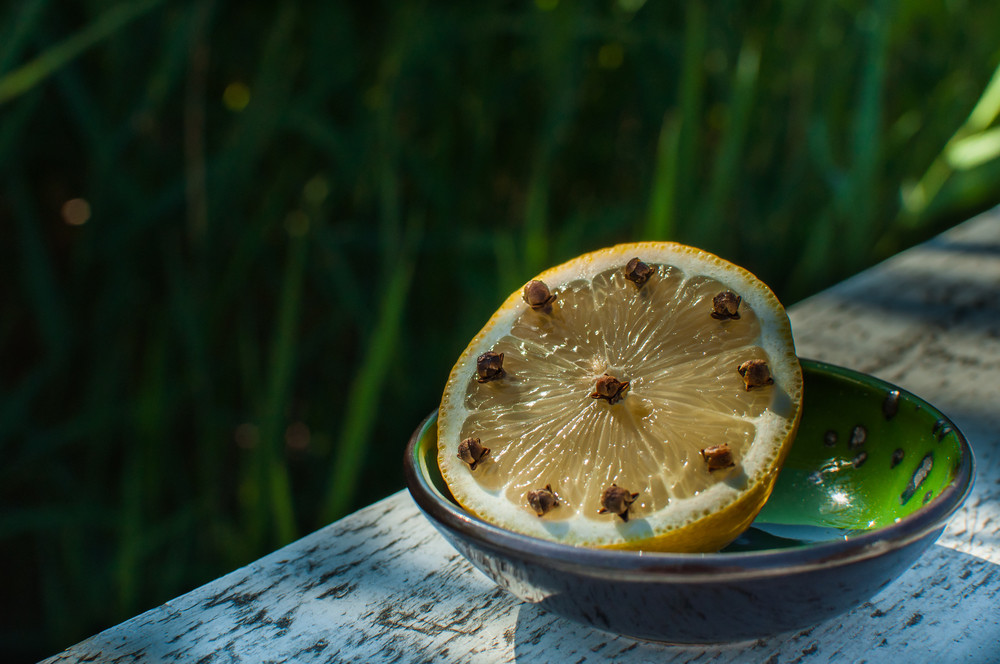
This method works well for both indoor and outdoor situations and practically guarantees that you won’t see any flies around for a while.
All you have to do is place whole cloves in a half lemon, wedging in as many of the cloves as you can fit into the flesh.
Place the lemon half in a bowl, and let it do its job.
30. Cayenne Pepper
Flies hate cayenne pepper, as do many other pests. To use it, simply mix some up with water and put it all in a spray bottle.
Spray liberally on areas with lots of flies, and it will kill them off in no time – it’s a safe and non-toxic solution for eliminating them in both your home and your garden.
31. Cucumber
Not only do ants hate the smell of cucumber, but so do flies. Place slices in any areas that are at risk of being infested.
This will keep them away before they even have a chance to seek out and discover the places they might want to lay their eggs.
More Fly Fighting Tips: 14 Natural Ways To Keep Flies Out Of Your Home
